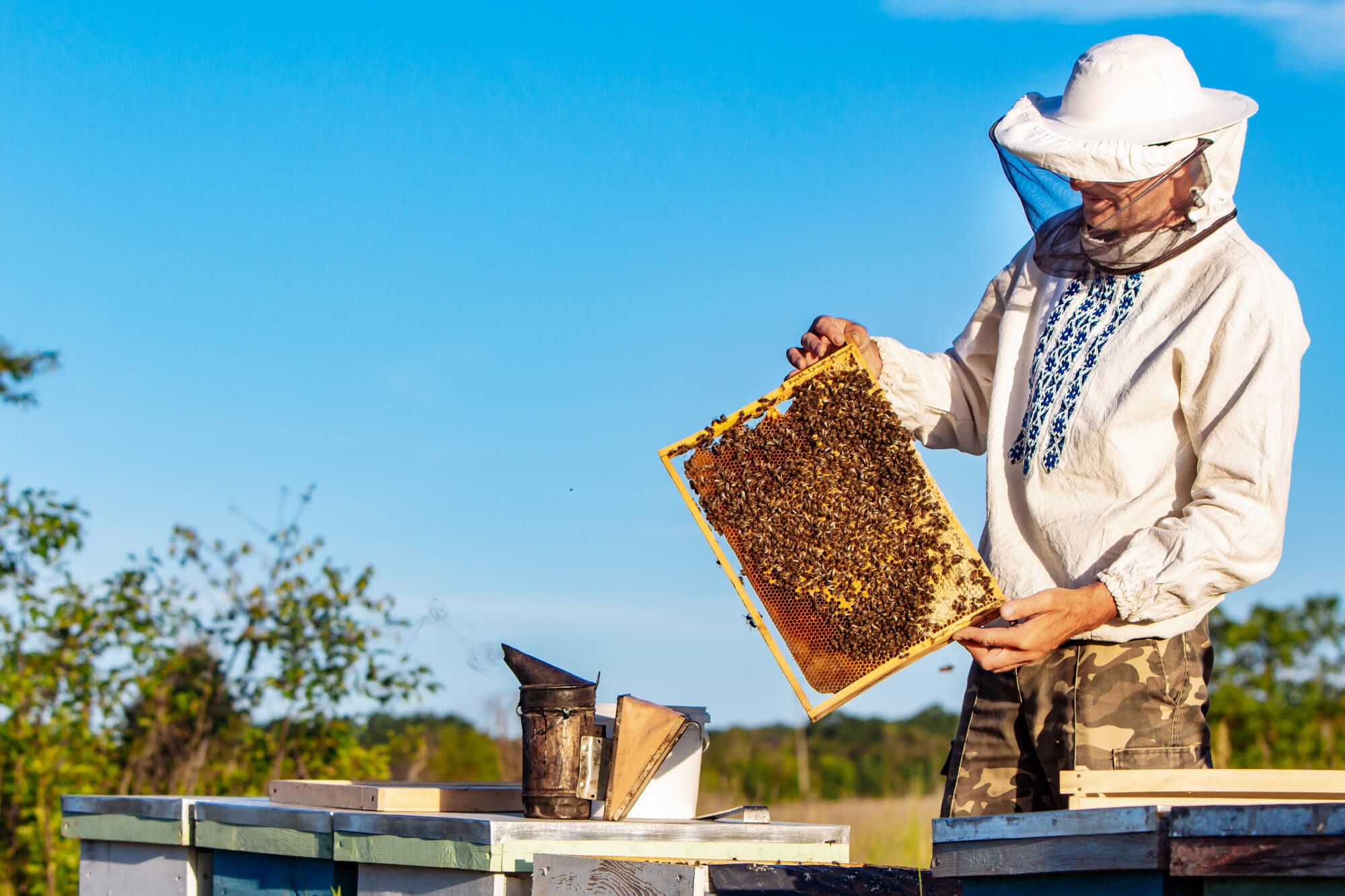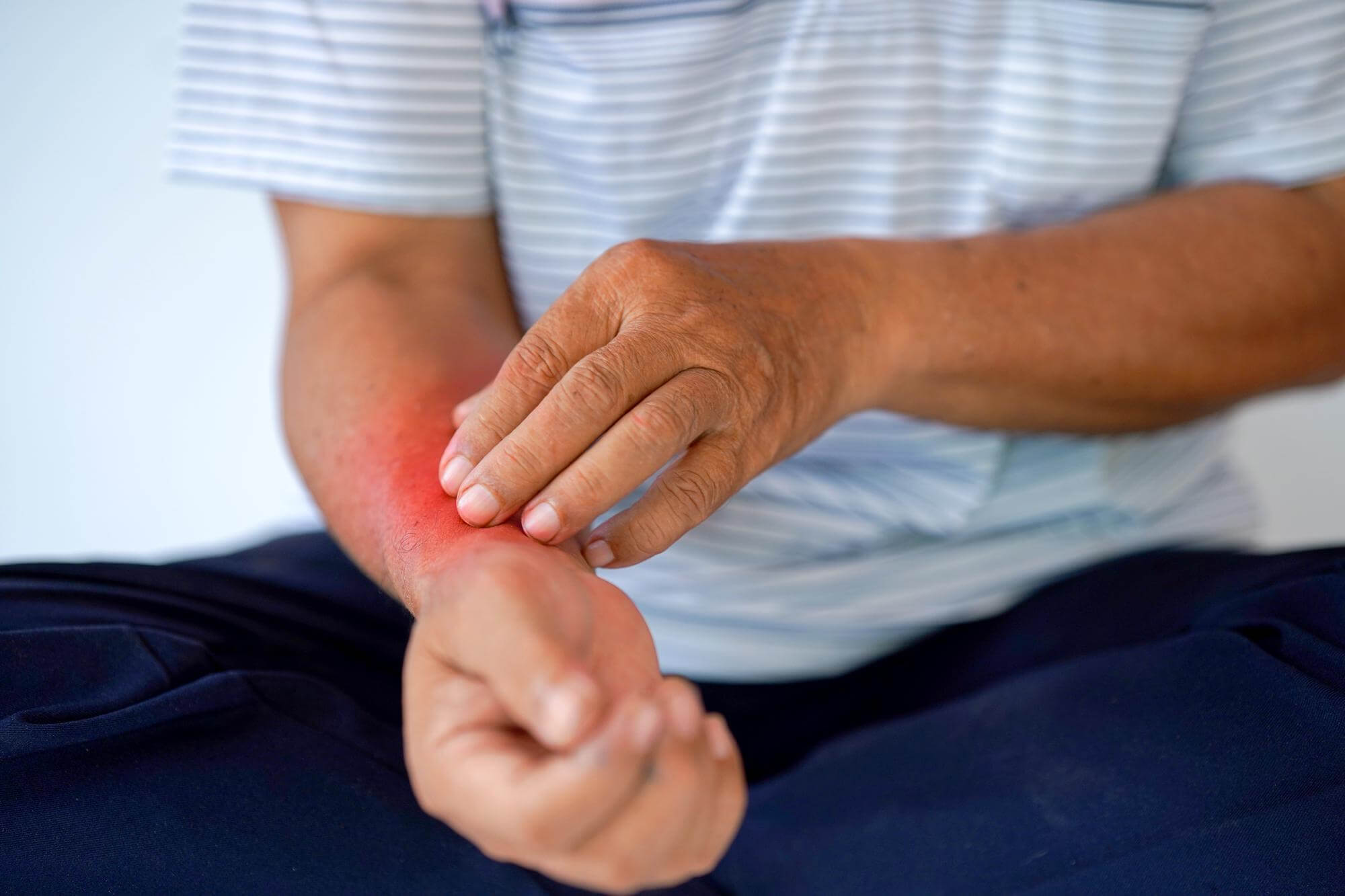Allergy to a wasp bite: symptoms and treatment


Eva Zakharova
Allergy to a wasp bite is a common occurrence that causes serious concern for people. It is important to know what to do after a wasp bite to avoid an allergic reaction and complications.
What is a wasp bite allergy?
A wasp bite allergy is the body's immune reaction to the venom that is injected into the bloodstream when stung. This reaction can be of varying degrees of severity, up to and including anaphylactic shock.
Approximately 2 per cent of the population is allergic to wasp and hornet stings. Of these, 15-20% may have serious reactions such as Quincke's edema or anaphylactic shock.
Causes of allergies to wasp stings
An allergic reaction is caused by the immune system's improper response to the proteins in a wasp's venom. The immune system perceives these proteins as harmful and begins to produce antibodies.
Some people have a genetic predisposition to be allergic to wasp stings, which increases the likelihood of developing an allergic reaction after a sting.
Symptoms of wasp sting allergy

- Local reactions manifest as redness, itching, and swelling at the site of the sting. Hives sometimes occur.
- Systemic reactions include headache, nausea, weakness, sudden drop in blood pressure, and palpitations. These symptoms can be dangerous and require immediate medical attention.
- Anaphylactic shock is the most dangerous form of wasp sting allergy. It is a rapidly progressive condition accompanied by severe swelling, difficulty breathing, seizures, and loss of consciousness. If not treated promptly, anaphylactic shock can be fatal.
Diagnosis of allergy to a wasp sting
- An allergist performs an examination and collects a medical history to determine if the reaction is allergic. This helps to identify signs of allergy to a wasp bite and determine the extent of the reaction.
- There are laboratory tests to determine the presence of antibodies to wasp venom proteins in the patient's blood. These tests enable the diagnosis to be confirmed and the degree of sensitivity to wasp venom to be determined.
Treatment of wasp sting allergy

Drug therapy
For wasp sting allergy, the doctor may prescribe antihistamine tablets (Cetirizine, Loratadine, Dimedrol, Fencarol), steroid medications (Prednisolone, Dexamethasone, Betamethasone), and agents to reduce swelling and itching (Hydrocortisone ointment, Phenystil gel). In case of anaphylactic shock, immediate administration of adrenaline is necessary.
Immunotherapy
Immunotherapy is a treatment that involves administering small doses of wasp venom to reduce sensitivity to it. Immunotherapy is supervised by a doctor and can significantly reduce the risk of an allergic reaction after a sting.
Alternative treatments
Some patients find relief in alternative therapies such as homeopathy, acupuncture or folk remedies. However, the effectiveness of these methods varies and they cannot replace traditional treatments.
Allergy to a wasp bite is a serious problem that requires attention and timely treatment. If you have preconditions for a wasp sting allergy or you have already experienced an allergic reaction after a sting, be sure to see an allergist. With timely diagnosis and adequate treatment, you can significantly reduce the risk of serious complications such as Quincke's edema or anaphylactic shock. Take care of your health and be attentive to your body's signals.
New materials
Popular Articles
We recommend reading
Contact us in the Contact Us section to ask questions, offer ideas, or for more information about our allergy resource.
Our articles are your trusted source of allergy knowledge. Learn how to make life with allergic reactions easier on our specialized portal.
©
Lechenie-Allergii.com. All rights reserved.
© Lechenie-Allergii.com. All rights reserved.
The information on this site is for informational purposes only and is not a substitute for professional medical advice. We recommend consulting with qualified medical professionals for accurate information and advice.
 English
English  Українська
Українська  Русский
Русский 









